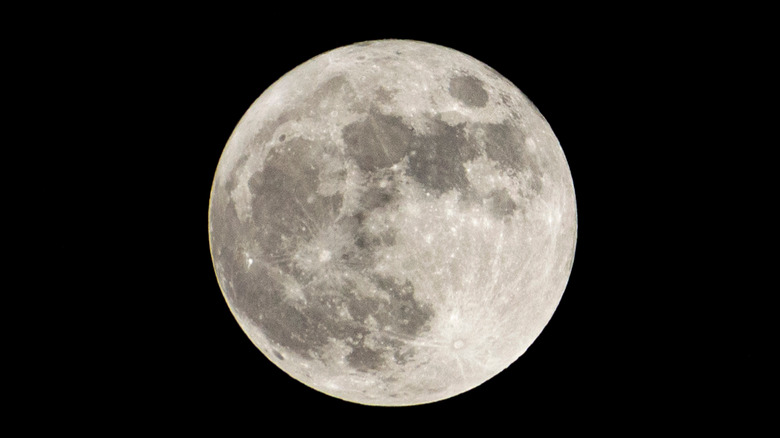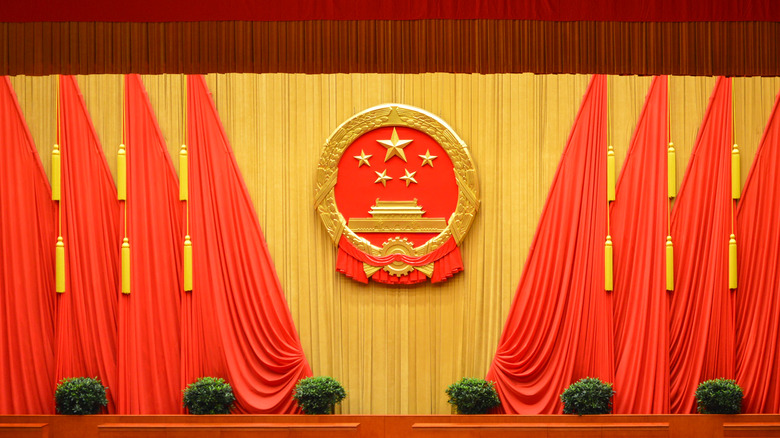China's Skeptical About Origins Of Rocket On Crash Course With Moon
There's a rocket booster currently on a crash course with the moon, but in contrast to the latest update from scientists, China's government doesn't believe its Chang'e-5 mission is behind the debris. Officials made that clear as part of a larger statement on the Olympics and other recent events, claiming its own experts evaluated the data and believe the booster has already met its fate.
The public became aware of a lunar crash event that will happen in a couple of weeks after an update about the matter was published this month. Put simply, there's a rocket booster that will smack into the lunar surface on March 4, 2022 — and initially, at least, experts thought the debris originated from a SpaceX rocket. That changed after NASA scientists pointed out the debris couldn't have originated from the private space company, triggering a reevaluation that identified the likely true source of the booster.
China disagrees about origins
Project Pluto reports the rocket debris originates from China's 2014 Chang'e-5 mission, something experts with the University of Arizona backed up with their own evidence. The students came to their conclusion by looking at the rocket booster's composition, finding that it best matches similar rockets from China. The team also shared their findings with NASA, which may be able to get images of the resulting impact site using its Lunar Reconnaissance Orbiter.
In a statement about the matter, China's Ministry of Foreign Affairs (FMPRC) issued a brief statement on February 21 claiming that its own scientists believe the rocket already burned up in the Earth's atmosphere. When asked by the Associated Press whether it could "confirm and provide any more details" on the upcoming collision, FMPRC spokesperson Wang Wenbin said, in part, "According to China's monitoring, the upper stage of the Chang'e-5 mission rocket has fallen through the Earth's atmosphere in a safe manner and burnt up completely. China's aerospace endeavors are always in keeping with international law."
The spokesperson went on to state that China is "earnestly safeguarding the long-term sustainability of outer space activities and are ready to have extensive exchanges and cooperation with all sides." At this time, at least, China hasn't published any additional information on the rocket booster nor made any claims about its possible origin.
Regardless, the event will underscore growing concerns about space junk and the ways it may impact the space around Earth, as well as future missions. University of Arizona associate professor Vishnu Reddy explained as part of the team's findings announcement, "There are only a handful of objects in lunar orbit, but I hope this event sheds light on the growing problem of space junk. This science community is concerned about the growing pollution."

